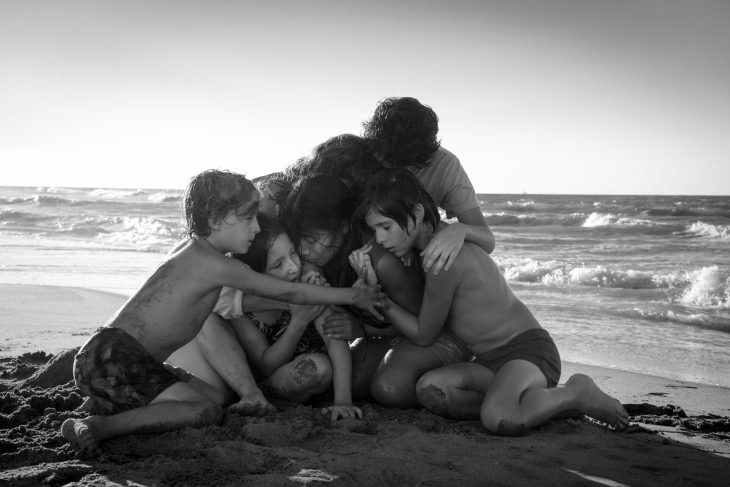My first viewing of Roma left me with a bitter taste: yes, the majority of critics are right in celebrating it as an instant classic, but I couldn’t get rid of the idea that this predominant perception is sustained by a terrifying, almost obscene, misreading, and that the movie is celebrated for all the wrong reasons.
Roma is read as a tribute to Cleo, a maid from the Colonia Roma neighbourhood of Mexico City working in the middle-class household of Sofia, her husband Antonio, their four young children, Sofia’s mother Teresa, and another maid, Adela. It take place in 1970, the time of large student protests and social unrest. As already in Y Tu Mama Tambien, Cuaron maintains distance between the two levels, the family troubles (Antonio leaving his family for a younger mistress, Cleo getting pregnant by a boyfriend who immediately abandons her), and this focus on intimate family topic makes the oppressive presence of social struggles all the more palpable as the diffuse but omnipresent background.

Get Britain's best politics newsletters
Register to get The Spectator's insight and opinion straight to your inbox. You can then read two free articles each week.
Already a subscriber? Log in






Comments
Join the debate for just £1 a month
Be part of the conversation with other Spectator readers by getting your first three months for £3.
UNLOCK ACCESS Just £1 a monthAlready a subscriber? Log in